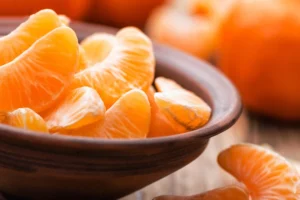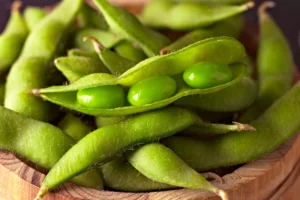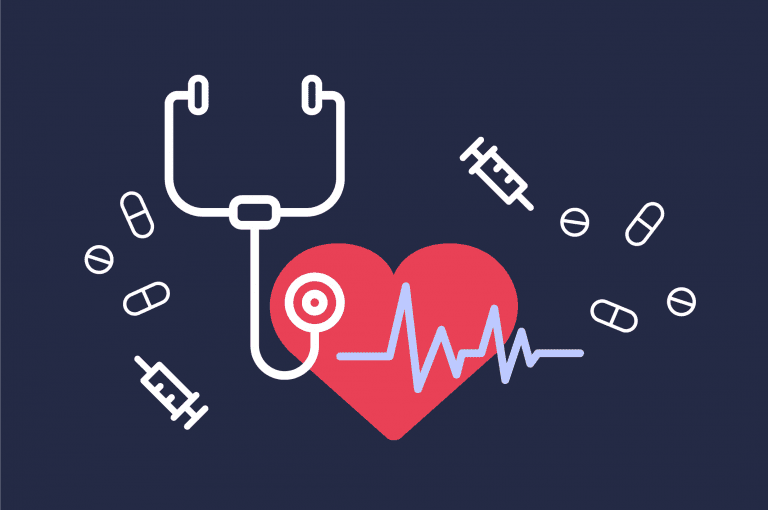The Best Foods That Maintain Heart Health and Reduce the Risk of Strokes

The Best Foods That Maintain Heart Health A strong heart doesn’t come from supplements or quick fixes—it comes from what you put on your plate every day Science shows that the best foods for heart health are also the ones that reduce stroke risk, lower cholesterol, stabilize blood pressure, and keep your arteries clear Building a heart healthy diet isn’t about deprivation—it’s about smart swaps and adding in more nutrient-dense options.
Below you’ll find a comprehensive guide to the foods that prevent heart disease and support healthy circulation These foods are easy to incorporate into everyday meals, packed with flavor, and backed by research.
The Best Foods That Maintain Heart Health
Discover how integrating heart healthy foods—rich in omega-3s, potassium, soluble fiber, and antioxidants—into a Mediterranean or DASH diet can dramatically reduce your risk of stroke and boost long-term cardiovascular wellness.
1. Black Beans: Fiber-Rich Powerhouses
Mild and versatile, black beans are loaded with fiber, folate, magnesium, and antioxidants—all champions for cardiovascular health. Fiber works to lower cholesterol and regulate blood sugar, while magnesium helps reduce blood pressure.
Quick tip: Rinse canned beans to wash away extra salt. Add them to soups, tacos, or salads for a hearty boost.

2. Red Wine and Resveratrol (in Moderation)
If you drink alcohol, red wine in small amounts can be a heart-smart choice. The antioxidants resveratrol and catechins may help protect artery walls, while moderate alcohol consumption can raise HDL cholesterol (the “good” cholesterol).
Important: More than one glass a day for women or two for men may harm the heart. Always consult your doctor, especially if you take medications.
3. Salmon: The Omega-3 Superfood
Few foods top salmon when it comes to omega-3 rich foods Omega-3 fatty acids are proven to:
-
Reduce risk of heart rhythm problems
-
Lower triglycerides
-
Decrease inflammation
-
Support healthy blood pressure
The American Heart Association recommends two servings of salmon or other oily fish for heart health each week.
Try baking salmon in foil with herbs, or toss leftovers into salads and fish tacos.
4. Tuna and Other Omega-3 Fish
For a more affordable option, tuna—especially albacore—provides plenty of omega-3s. Other good choices include mackerel, sardines, herring, lake trout, and anchovies.
Always choose tuna packed in water, not oil, for a leaner heart-healthy protein option.
5. Olive Oil: Healthy Fat for Healthy Arteries
Swapping butter or margarine for olive oil is one of the easiest ways to improve your diet. Olive oil contains monounsaturated fats and antioxidants that protect blood vessels and help lower bad cholesterol (LDL).
For the best flavor and nutrition, pick cold-pressed extra virgin olive oil and use within six months.
6. Walnuts: A Daily Heart Shield
A handful of walnuts a day supports healthy arteries by lowering cholesterol and reducing inflammation. They’re packed with omega-3s, plant sterols, and fiber—nutrients that work together to strengthen heart function.
Swap chips for walnuts as a crunchy snack or use walnut oil in salad dressings.
7. Almonds: Smart Snacking for Cholesterol
Almonds deliver plant sterols, fiber, and monounsaturated fats that may reduce LDL cholesterol. Toasting them enhances their mild flavor, making them perfect for topping veggies, chicken, or desserts.
Stick to a small handful daily—nuts are calorie-dense, but they’re among the best nuts for heart health.

8. Edamame and Tofu: Soy Protein Stars
Soy protein can help lower cholesterol levels, making soy-based foods like edamame and tofu valuable for heart health. A cup of edamame also provides 8 grams of fiber, a nutrient many people lack.
Boil frozen edamame for a fun snack or stir-fry tofu with vegetables for a plant based protein for heart health.
9. Sweet Potatoes: A Better Carb Choice
Compared to white potatoes, sweet potatoes have a lower glycemic index, meaning they won’t spike blood sugar as quickly. They’re also rich in fiber, vitamin A, and potassium, all beneficial for cardiovascular health.
For a natural sweet flavor, add cinnamon and a squeeze of lime instead of sugary toppings.
10. Oranges and Citrus Fruits
Citrus fruits like oranges provide pectin (a cholesterol-lowering fiber) and potassium, which regulates blood pressure. Just two cups of orange juice daily has been linked to lower diastolic blood pressure in some studies.
Fresh fruit beats juice for fiber and fewer calories, making oranges one of the best fruits for heart health.
11. Leafy Greens: Nutrient-Dense Blood Pressure Helpers
Vegetables like spinach, kale, Swiss chard, bok choy, and arugula are rich in potassium, magnesium, fiber, and nitrates, which relax blood vessels and improve circulation.
Sauté greens with olive oil and garlic, or toss them into soups and stir-fries for a simple nutrient upgrade.
12. Whole Grains: Barley and Oats
-
Barley: Packed with fiber, it lowers cholesterol and stabilizes blood sugar. Opt for hulled or whole-grain barley for maximum benefits.
-
Oatmeal: A breakfast staple that helps reduce LDL cholesterol, keeps you full, and supports steady blood sugar.
For baking, replace a third of flour with oats for a whole grain heart healthy diet boost.
13. Flaxseed: Tiny but Mighty
Flaxseeds provide fiber, lignans, and omega-3s, making them a triple threat for cardiovascular health. Grind them for better absorption and mix into cereal, smoothies, or baked goods.
14. Low-Fat Yogurt: Calcium and Blood Pressure Control
Dairy foods like yogurt are often praised for bone health, but low-fat yogurt also helps regulate blood pressure thanks to its calcium and potassium content.
Choose plain, unsweetened, low-fat yogurt for the best heart healthy diet option.
15. Sterol-Fortified Foods
Some margarines, soy milk, almond milk, and orange juices come fortified with plant sterols and stanols, which block cholesterol absorption and can lower LDL by up to 10%.
16. Berries: Blueberries and Cherries
-
Blueberries: Rich in anthocyanins, fiber, and antioxidants that protect blood vessels.
-
Cherries: Contain anthocyanins that may reduce inflammation and support healthy arteries.
Add them to cereal, salads, or yogurt for a natural antioxidant-rich food boost.

Putting It All Together: Building a Heart-Healthy Plate
A strong cardiovascular system thrives on variety. To create a balanced heart healthy diet:
-
Eat two servings of omega-3 fish per week (salmon, tuna, mackerel).
-
Choose whole grains like oats and barley instead of refined grains.
-
Add beans, lentils, or soy foods for plant-based protein.
-
Snack on nuts and seeds instead of chips or sweets.
-
Pile your plate with leafy greens, citrus fruits, and berries.
-
Use olive oil instead of butter for cooking.
Your daily food choices can either clog arteries or keep them flexible and strong By consistently reaching for foods that reduce stroke risk and improve circulation, you can lower your cholesterol, stabilize blood pressure, and protect your heart for years to come.
Eating for heart health isn’t about restriction—it’s about flavor, variety, and balance. With these foods that prevent heart disease on your table, you’ll not only feel better but also safeguard your future.




